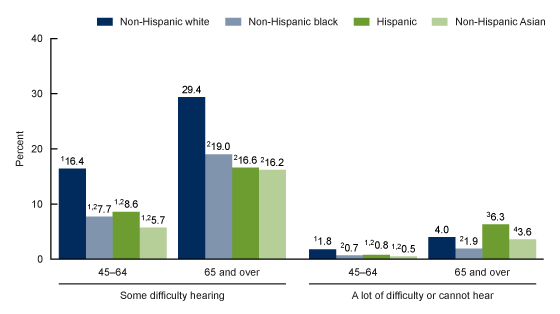
President Biden recently announced the Executive Order on Promoting Competition in the American Economy, and now the expansion of over-the-counter (OTC) hearing aids is one step closer to reality. People with hearing loss are understandably excited: This announcement promises to make hearing aids more accessible and more affordable.

More than 7% of Americans age 45 and older use hearing aids, so greater access to these life-changing devices is huge. But are OTC hearing aids as good as they sound?
Consumers need to be aware of some potential risks before purchasing OTC hearing aids. Keep reading to learn more about the best over-the-counter options – and what to avoid.
Traditionally, hearing aids have been quite expensive and require a hearing fitting from a certified hearing care professional, making it more challenging for people with hearing loss to get the devices they need.
In 2017, Congress passed legislation allowing for the creation of a new category of over-the-counter hearing aids. These devices would be much less expensive than traditional hearing aids and wouldn’t require a hearing fitting.
This legislation wasn’t fully implemented until June 2021, when President Biden signed an executive order instructing the Health and Human Services Department to promote widespread availability of low-cost hearing aids. While this is a major step forward in transparency and equity for those with hearing loss, there are some important unintended consequences that people must be aware of as well.
There are many reasons people view this announcement about OTC hearing aids as a positive development:
These factors make OTC hearing aids an attractive option for people with hearing loss. Being able to simply walk into a store or shop online and purchase a hearing aid is a major advantage.
Have you taken our free online hearing test exam?
But that’s one of the many potential dangers of OTC hearing aids. Because they’re so accessible, people might purchase them without getting a professional opinion or fitting first. And without knowing how these devices should work or fit, they may do more harm than good.
With traditional hearing aids, you need to see a medically trained, hearing care professional. You then need to return to a hearing care professional for regular check-ups to ensure the hearing aid is still working properly and your quality of hearing has improved. With over-the-counter hearing aids, that process is completely different.
You can purchase OTC hearing aids over the counter without seeing a doctor or getting a hearing fitting. In some cases, you might need to take a short online assessment to ensure that an OTC hearing aid is appropriate for your level of hearing loss. However, you can ultimately purchase hearing aids whether you truly need them or not, without knowing which brand or type is best for you.
The new FDA regulations mean that OTC hearing aids will be available to anyone over 18 with mild or moderate hearing loss. Those who may not be able to afford traditional hearing aids (which typically aren’t covered by insurance) will also benefit.
Ultimately OTC hearing aids may be seen as the most affordable and convenient option for those with minimal hearing loss. However, by skipping the important step of visiting a hearing care professional or other medical professional for a hearing check, you may not know if there is a deeper cause of hearing loss or other underlying health condition that needs to be addressed. And that’s is just the beginning of the problems with OTC products.
Lots of people are excited about OTC hearing aids without realizing the additional consequences that come along with this new legislation. Here are some potential problems that could arise from their wide availability.
Are non-prescription hearing aids the future of hearing healthcare? It’s hard to say. They have the potential to make hearing aids more accessible for people with mild hearing loss, but there are some significant drawbacks.

At DirectHearing.com, we believe that you should always consult with a professional before making a decision about your hearing health. We can provide long term support as well.
Here are some of the advantages of working with a hearing care professional and using DirectHearing.com instead of an OTC hearing aid.

Hearing loss is a common problem, and for many people, hearing aids bring significant relief and improvement in quality of life. However, if you are experiencing hearing loss, you should consult with a professional hearing specialist before making a decision about your hearing health. Simply driving to your local store and selecting an OTC hearing aid may not be the best solution.
At DirectHearing.com, we offer custom-fit hearing aids specifically designed for your ear and hearing needs. We also offer a wide selection of devices from the leading manufacturers, making it easy for you to find the perfect device for your hearing loss level at affordable prices.
If you’re considering an OTC hearing aid, we encourage you to learn more about your options with DirectHearing.com first. We’re here to help you every step of the way, and we’ll make sure you get the best possible device for your needs. We even offer a 60-day risk-free trial. Contact us today to learn more about our products and services or to schedule a consultation.